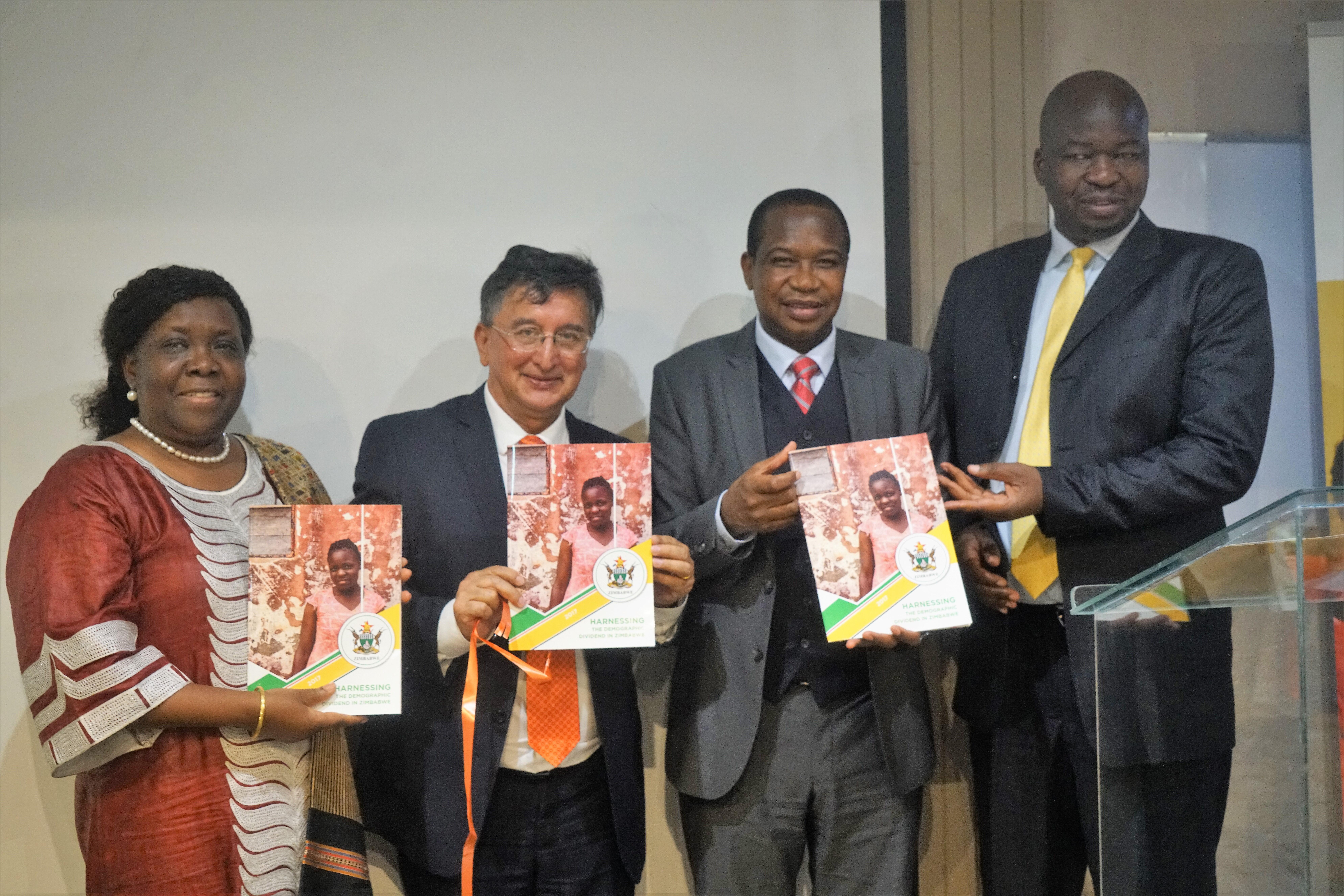Harare, 10 December 2015 –The Government of Zimbabwe (GoZ) with support from the United Nations Population Fund (UNFPA) today launched findings of the Demographic Dividend (DD) Study which calls for greater investment in young people to reap the Demographic Dividend.
The demographic dividend is the social and economic benefit that can arise when a country has a relatively large proportion of working-age population driven by declining fertility and mortality. This allows the country effective investment in their health, education and skills enhancement for economic empowerment through public action and private sector involvement.
The Study revealed that Zimbabwe’s age-sex population structure is projected to change in the next two decades, with the share of working age population set to rise from 55% in 2012 to 64% by 2032. Zimbabwe entered the demographic dividend window in 2004 and this will continue until 2060.
Zimbabwe’s successful health policies, programmes and investments in health, notably Maternal, Newborn, Child and Adolescent Health Care (MNCH-A) including family planning has seen Zimbabwe lead in most of the indicators on the continent. In addition, successful post-independence education policies and programmes have seen the country achieving one of the highest literacy rates in Africa. These are key contributors to the opportunity of the demographic dividend arising today.
“More often than not, when we speak on issues of economic growth, we pay less attention to a critical cog in the equation, that is, the human capital aspect,” said the Minister of Finance and Economic Development, Proffesor Mtuli Ncube at the launch. “To keep this perspective under focus, in 2013 the African Union adopted the Addis Ababa Declaration on Population and Development in Africa beyond 2014 under the theme “Harnessing the Demographic Dividend: The Future We Want.”
However, the DD is not automatic and there are a number of challenges, including high rates of early marriage; teenage pregnancy, especially among girls residing in the rural areas and high density urban settings. Unacceptably high maternal mortality especially among young women; increase in school drop-outs at secondary level and most significantly, a lack of employment opportunities especially among the urban youth.
The study therefore emphasized that in order to reap the Demographic Dividend key investments are required in education and enhanced skills development especially for girls; ensuring young people live healthy lifestyles with access to health and information services; creating employment and eliminating barriers for active participation of youth in nation building.
“As the United Nations family, we continue to support the Government of Zimbabwe in making increased investment in areas such as health, education, implementing laws that end child marriages, Gender Based Violence and harmful cultural practices. This will allow the country to reap from this Demographic Dividend,” said UN Resident Coordinator Mr Bishow Parajuli. “Today we reaffirm our commitment to the people of Zimbabwe and will continue working hard to contribute to making a difference in the lives of all Zimbabweans.
For more information and media queries please contact
Tracey Chiyanike Lusewa, Principal Economist, Ministry of Finance and Economic Development: Tel: 263772895461 Email: tchiyanike@gmail.com
Sirak Gebrehiwot, Communications Specialist, UN Resident Coordinator’s Office: Tel: 263772198036 Email: sirak.gebrehiwot@one.un.org
Bertha Shoko, Communications Analyst--UNFPA: Tel: 263 772 782 299 Email: shoko@unfpa.org



